In a unique venture at a primary school in the southern suburbs of the Paris region, the Food Microbial Ecology Team and the PhylHom team united to teach microbiology, fermented foods, and the gut microbiome to curious young minds. In a vibrant classroom, 50 kids engaged in a dynamic 30-minute session, exploring the microscopic world through interactive discussions and vivid illustrations.
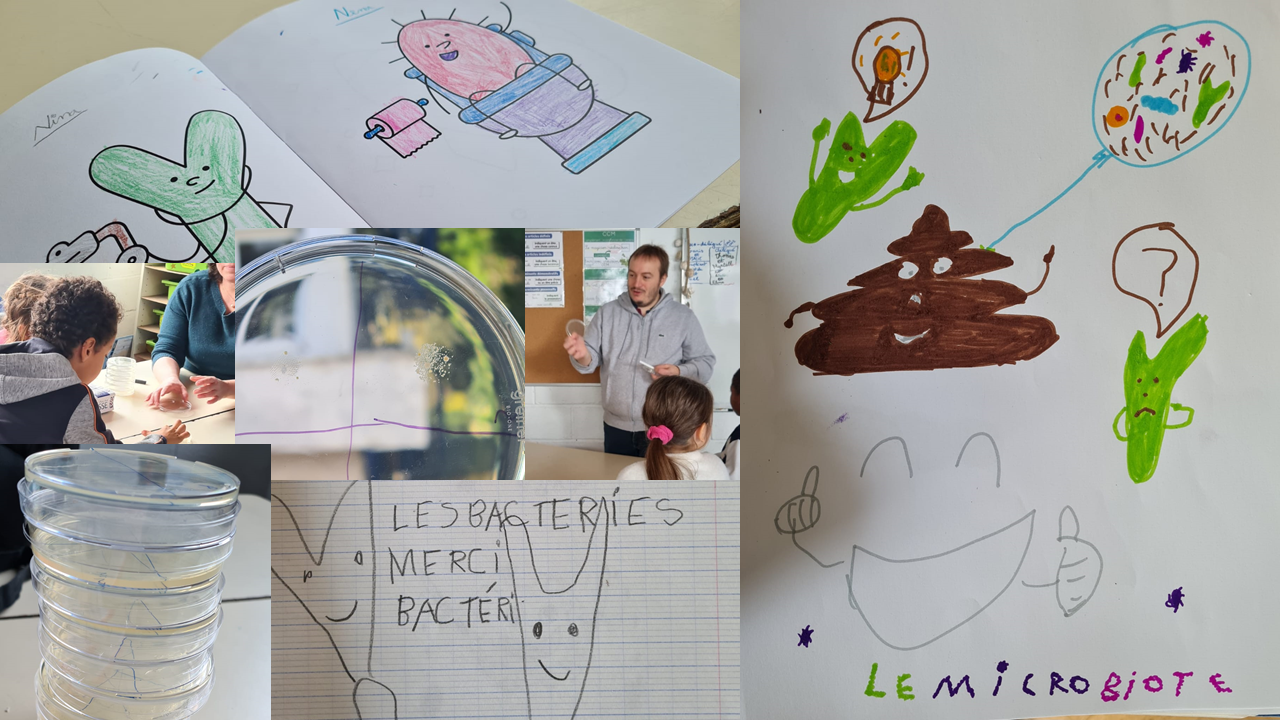
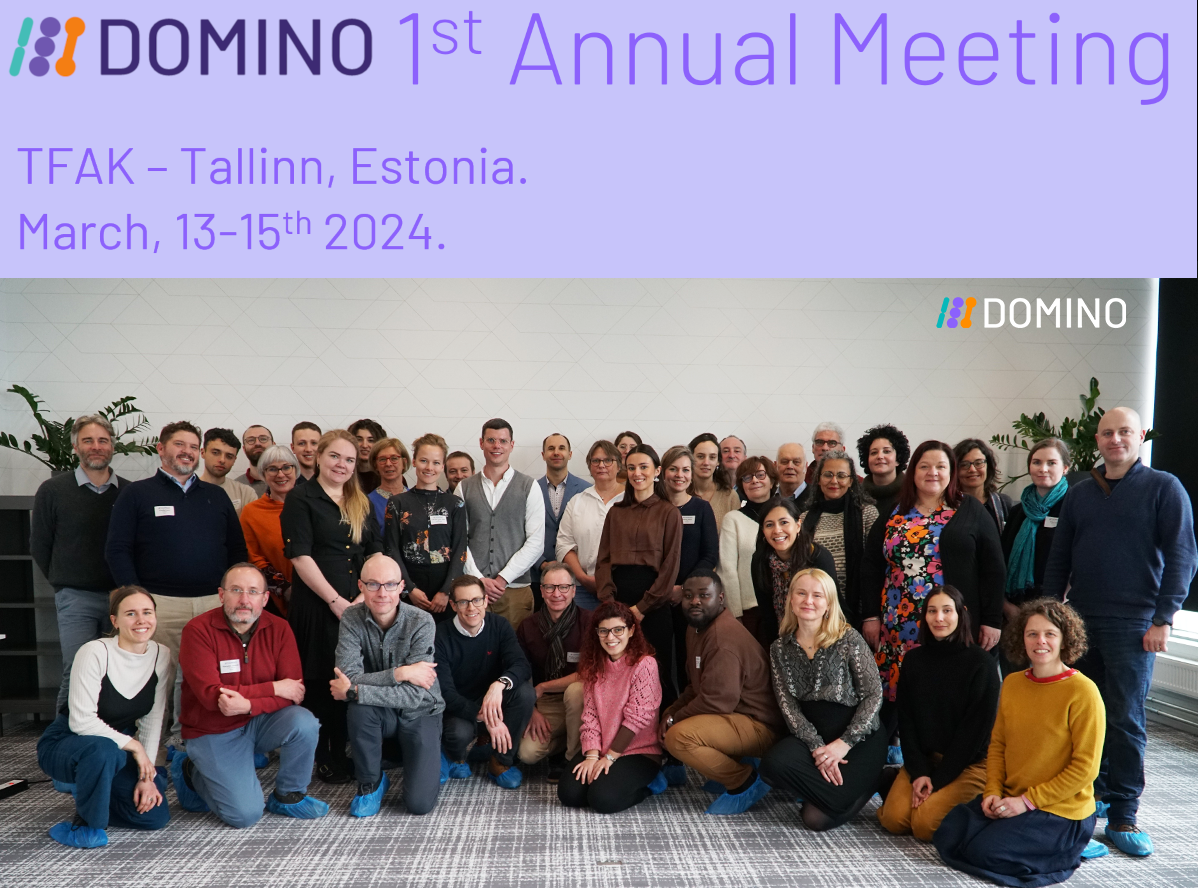
The #DominoEU project consortium met in Tallinn, Estonia, to discuss the results of the first year.
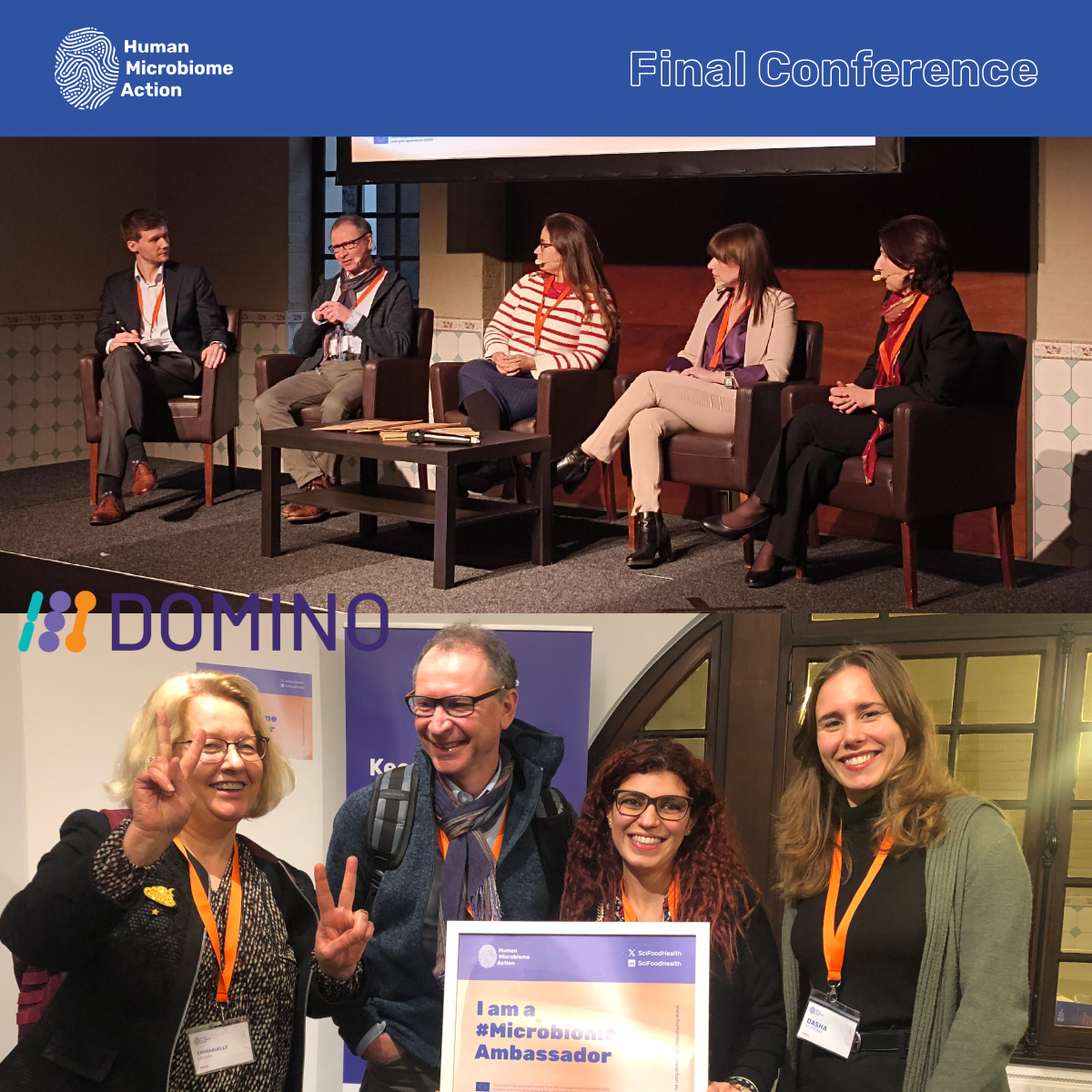
The final conference of the Human Microbiome Action coordinated by Joël Doré, Emmanuelle Maguin and Mani Arumugam took place in Brussels at les Ateliers des Tanneurs on the 29th of February. A lot of very interesting talks summarizing the state of the art in Human microbiome research meanwhile paving the ground on policies for safeguarding public health.
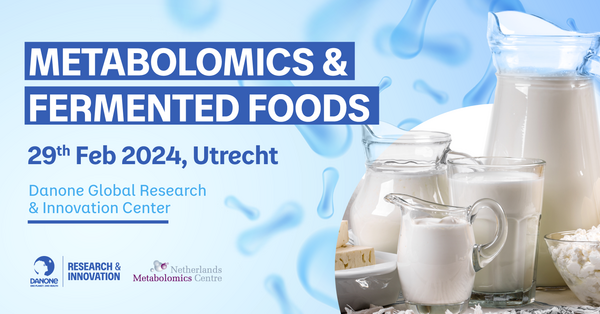
The recent ‘Metabolomics and Fermented Foods’ seminar organized by the Netherland Metabolomic Centre and held at the Danone Nutricia Global Research & Innovation Center in Utrecht was a melting pot of groundbreaking ideas and discussions, delving deep into the intricate relationship between metabolomics, fermented foods, and gut health. Esteemed experts like Paul Cotter, Guus Roeselers, Barbara Koroušić Seljak, and others shared their invaluable insights, providing attendees with a comprehensive understanding of this dynamic field.
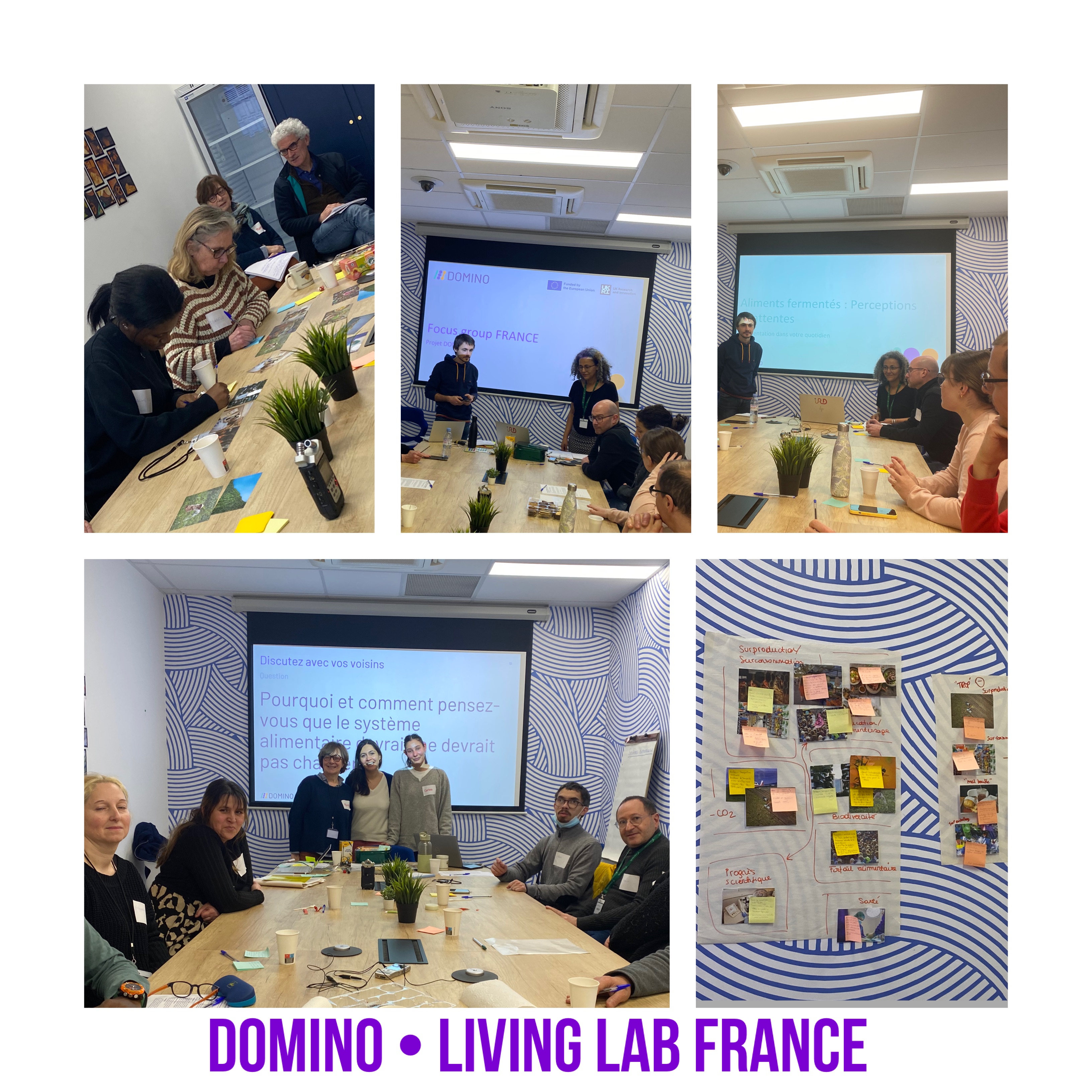
As part of the DOMINO project, 6 living labs will be set up in 6 different countries to interact with consumers and stakholders on the place of traditional and future fermented foods in a sustainable food system.
Latest Posts
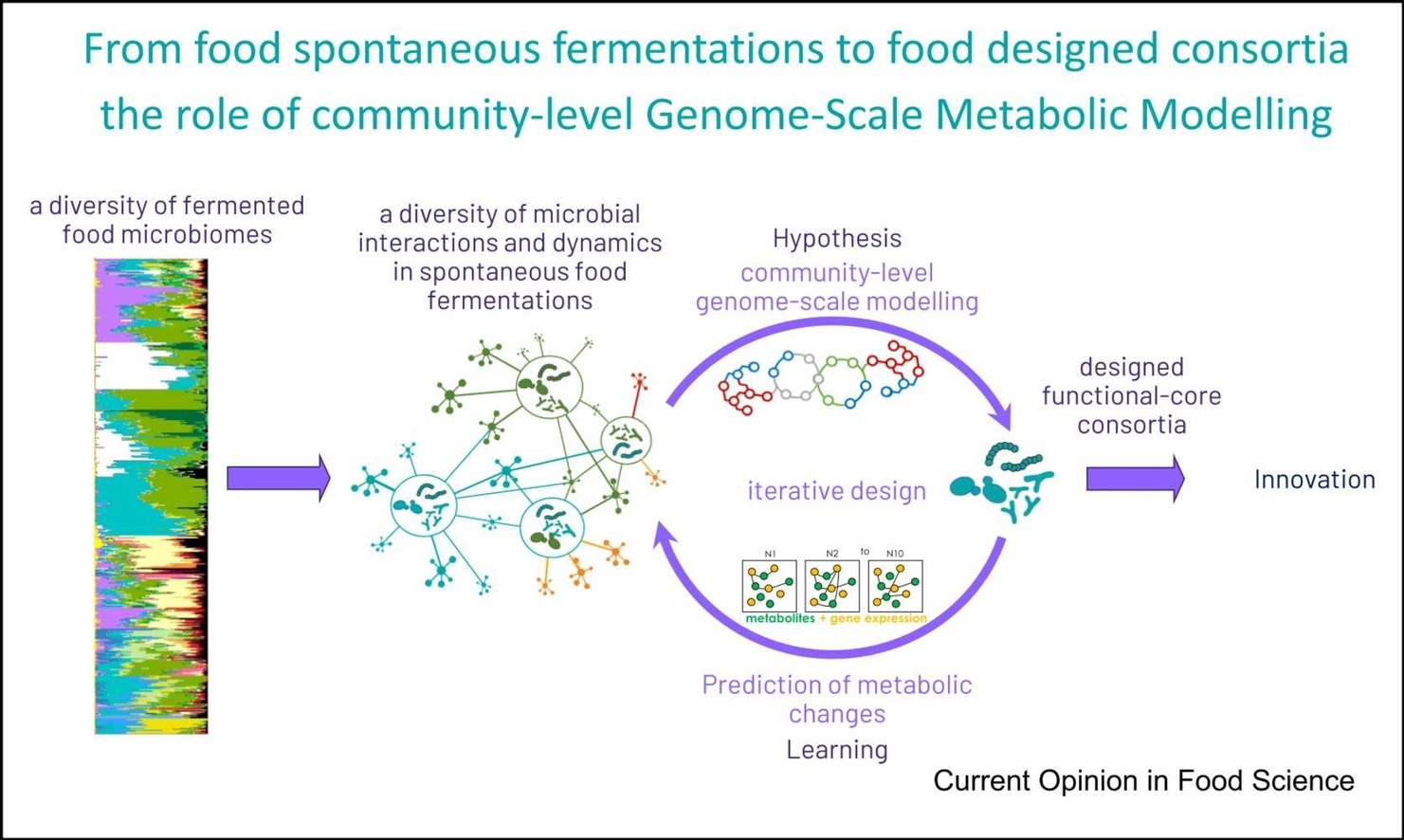
Our new article entitled “Microbiome metabolic modeling as a tool for innovation in fermented foods” has been published in in Current Opinion of Food Science1.
-
Elham Karimi, Julien Tap, Marie-Christine Champomier-Vergès, Stéphane Chaillou. Microbiome metabolic modeling as a tool for innovation in fermented foods. Current Opinion of Food Science. 2025 ↩
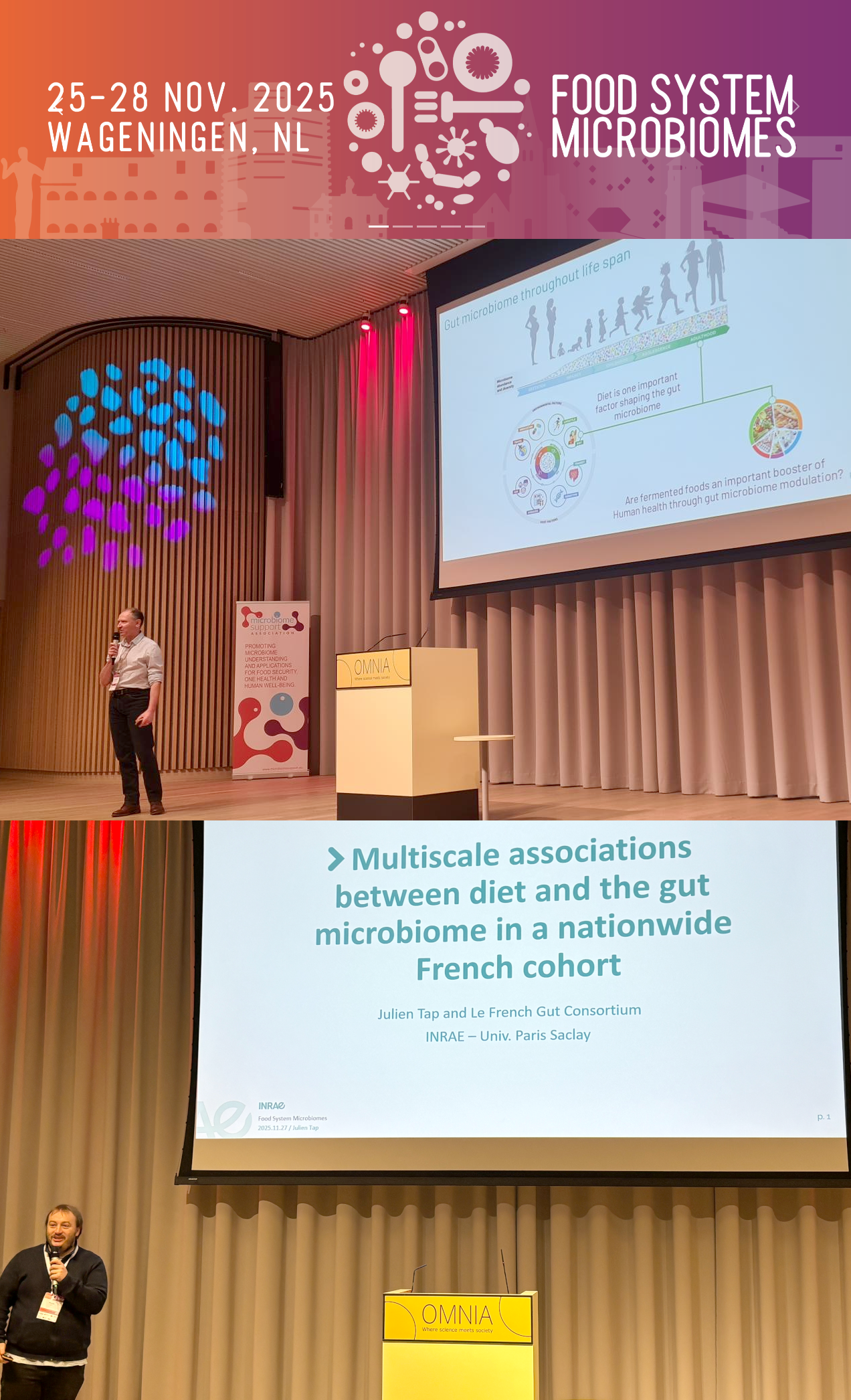
On Thursday 27 November, the FME lab took part in the Food System Microbiomes Conference in Wageningen during the session dedicated to the connections between microbiomes, nutrition and health. The session was co-chaired by Stéphane Chaillou (INRAE, Micalis) and Prof. Christophe Courtin (KU Leuven), and provided an opportunity to showcase advances from two major European projects: DOMINO and HealthFerm.

A new scoping review published in Frontiers in Nutrition1 as part of the COST Action PIMENTO initiative provides a comprehensive assessment of what is currently known about the health effects of fermented foods in specific human populations. This work reflects a substantial collective effort. We conducted an extensive and rigorous screening of the scientific literature, reviewing and selecting studies across many categories of fermented foods and health outcomes.
-
Humblot Christèle, Alvanoudi Panagiota, Alves Emilia, Assunçao Ricardo, Belovic Miona, Bulmus-Tuccar Tugce, Chassard Christophe, Derrien Muriel, Karagöz Mustafa Fevzi, Karakaya Sibel, Laranjo Marta, Mantzouridou Fani Th, Rosado Catarina, Pracer Smilja, Saar Helen, Tap Julien, Treven Primož, Vergères Guy, Pertziger Eugenia, Savary-Auzeloux Isabelle, A scoping review of the health effects of fermented foods in specific human populations and their potential role in precision nutrition: current knowledge and gaps. Frontiers in Nutrition. 2025 doi:10.3389/fnut.2025.1650633 ↩